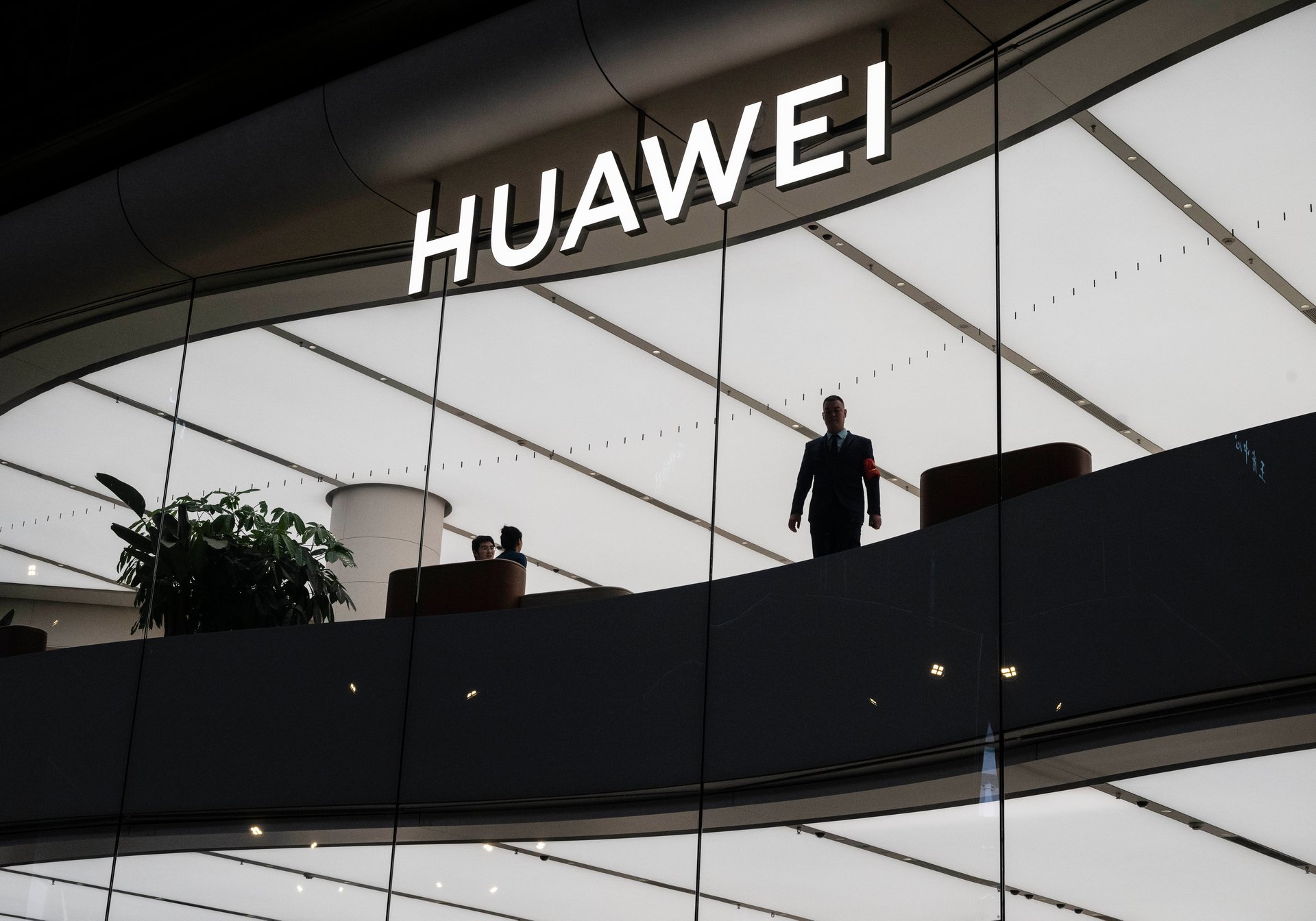Taiwan joins the U.S. in blacklisting China's Huawei
As the U.S. cracks down on China's AI and semiconductor dreams, it's getting help from the world's top chipmaking hub

Kevin Frayer/Getty Images
Taiwan has blacklisted Huawei and SMIC — two of China’s most important tech companies — in a move that will likely escalate the global chip war and signals that the island is tightening its alignment with U.S. trade policy.
Suggested Reading
Taiwan’s International Trade Administration added the Chinese tech giants to its “Strategic High-Tech Commodities Entity List” over the weekend. Now, Taiwanese companies will need a government-issued license before sending any goods — from advanced chips to manufacturing materials — to Huawei, SMIC, or their global subsidiaries.
Related Content
It’s not the first time either company has landed on a blacklist — both have been barred from U.S. tech exports for years (they’re on the U.S. Commerce Department’s Entity List). But the move is a significant one, perhaps designed to course correct after recent missteps.
Last fall, U.S. regulators were surprised when teardown specialists found a Huawei AI chip that had silicon from Taiwan Semiconductor Manufacturing Company (TSMC) — Taiwan’s crown jewel and the world’s top chipmaker (and a huge supplier to U.S. darling Nvidia). The revelation triggered a scramble: TSMC suspended shipments to certain Chinese clients, and the Commerce Department stepped in to block further exports. Now, TSMC could face a $1 billion fine tied to the incident.
Still, some believe Huawei might have acquired several million of the important silicon pieces before its restriction-skirting was discovered.
While TSMC’s direct business with Huawei and SMIC has already been mostly cut off under U.S. export rules since 2020, their additions to Taiwan’s government list will help formalize and enforce the policy more robustly. The blacklist also serves as a warning to Chinese companies accused of technology theft and talent poaching, which have long been sore spots for Taiwanese officials. And crucially, this embargo on critical plant technology, advanced packaging, and chip‑making supplies represents another major barrier to China’s AI and semiconductor dreams — to which Huawei and SMIC are key.
Huawei has been racing to build viable alternatives to Nvidia’s powerful GPUs, while SMIC has poured billions into manufacturing capacity to support China’s domestic chip ecosystem. The two companies surprised U.S. politicians last year when Huawei released a 7-nanometer AI processor powered by SMIC technology, triggering fresh scrutiny in Washington. Still, progress for the two has been slow, and Huawei's chips still lag behind Nvidia’s — largely as a result of export controls on Chinese tech and a lack of scale and capability in China’s chip ecosystem.
Nvidia, meanwhile, has become a central figure in the U.S.-China chip standoff, caught between skyrocketing global demand for its AI processors and intensifying export controls aimed squarely at Beijing.
In the past year, Washington has repeatedly tightened restrictions on Nvidia’s China-bound chips — first banning sales of its top-tier GPUs, then pulling back even on watered-down versions. (CEO Jensen Huang said the chip ban cost the company $15 billion.) While Nvidia has tried to engineer around the rules with export-compliant alternatives, the U.S. keeps narrowing the loopholes, and now even those lighter chips are off the table. As a result, China’s tech giants are scrambling for substitutes, and Nvidia is losing access to one of the world’s largest AI markets — at least for now — although the company keeps chugging along.
Huawei and SMIC’s addition to the entity list carries symbolic weight — a reminder that Taiwan’s position in the global semiconductor race isn’t just economic, it’s geopolitical.
Taiwan’s move doesn’t come in a vacuum. It lands as the U.S. expands bans on Nvidia’s China-facing AI chips and just weeks after Beijing staged another round of military drills off Taiwan’s coast. China’s top political adviser recently reaffirmed calls for reunification. Taiwan’s president, meanwhile, labeled China a “foreign hostile force” for the first time.
Against that backdrop, for Beijing, the export controls are yet another hurdle in a semiconductor arms race already littered with restrictions, tariffs, and blacklists. For Huawei and SMIC, they’re a sign that even the back doors are being locked. And for Taiwan, it’s a sign that the country is taking sides — and might be going all-in with its chips.